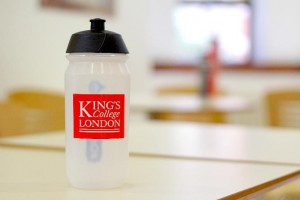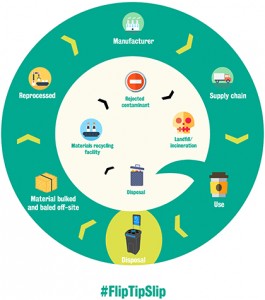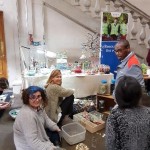Every year we hold Sustainability Week in order to raise awareness and educate staff and students about sustainability at King’s. This year we worked with student groups, King’s departments and external partners to bring to you a week based around the theme of how you can ‘make a difference’. Here are some reflections on the week…
Sustainability Pop up: This year for Sustainability Week we hosted an interactive stall across King’s campuses. We gave you the chance to win a Keep Cup by correctly guessing how long it took everyday items to degrade (many people were shocked to find out that it can take a plastic bottle up to 450 years to degrade!), quizzed you about how to correctly recycle at King’s and played a game to see if staff and students know how to use or special coffee cup bins (remember, #fliptipslip!).


VegFest: Studies show that a veganism can reduce the environmental impact that your diet has, and reducing the amount of milk and dairy we consume can positively affect climate change. In collaboration with EcoSoc we hosted a VegFest with free samples of vegan cheese (thanks to Bute Island Food who were also kind enough to donate last year). Students and staff brought delicious dishes for everyone to try, talked about the environmental impact of the food we eat and discussed the issues surrounding veganism.

Careers Events: Sustainability is more and more becoming an integral part of business and big organisations. King’s Careers and Employability hosted a successful event during Sustainability Week with guests from law firm Allen & Overy, Good Business and our Head of Sustainability Kat Thorne. The event was designed to help students understand how they can find internships and develop their career in sustainability. For more information please visit King’s Internships.
Cycling: In the Sustainability Team we do everything we can to promote cycling at King’s. Because of this we held four Dr Bike sessions. These sessions provided free bike checks to students and staff throughout the week. Mechanics changed bike pads, checked chains and for whatever they couldn’t fix, gave accurate quotes for how much it should cost to get repaired.
Geography Documentary Screening: The Geography Department Sustainability Champions and King’s Climate hosted a film screening of former US Vice President and environmental activist Al Gore’s latest film ‘An Inconvenient Sequel: Truth to Power’. A panel beforehand made up to PhD students, lecturers and Dr George Adamson discussed our response to climate change and the best ways to tackle the issue.

GoodGym: King’s GoodGym is a community of runners that combines getting fit with doing good. For this session the runners went to Oasis Farm Waterloo, and urban farm and community resource, to help to make planters for trees. King’s GoodGym is a great way to get fit and to also to help the local community. Read more about the Sustainability Week session on our blog.


Temple Gardening Club Winter Pruning: We teamed up with the Northbank BID to bring you this gardening session at Temple gardens. Staff and students braved the cold weather to prune rose bushes ready for regrowth in the spring.

SGDP Sustainable Labs Tour: Labs consume 3-10 times more energy per square metre than normal academic spaces like lecture theatres or offices. As a research university, King’s manages a variety of energy-intensive labs across its campuses, which is why it’s so important to make our labs as sustainable as possible. This tour of the laboratory at the Social, Genetic & Developmental Psychiatry Centre was led by Bernard Freeman, Lab Sustainability Champion. The SGDP lab has achieved a Gold Award at the 2017 King’s Sustainability Awards, and Bernard was a Finalist in the 2017 Green Gown Awards for his efforts in embedding sustainability into labs.
This year Sustainability Week was all about how you can make a difference, which you showed us you can do in so many ways! From volunteering, bringing in homemade vegan food to finding out how you can develop your career in sustainability, you showed us exactly what the King’s Community is capable of!
Sophia Courtney, Sustainability Projects Assistant
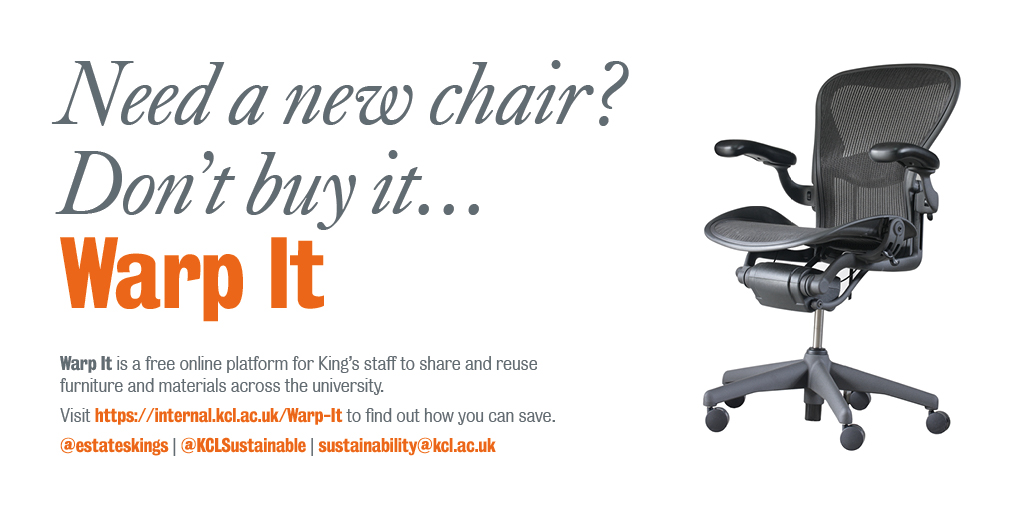





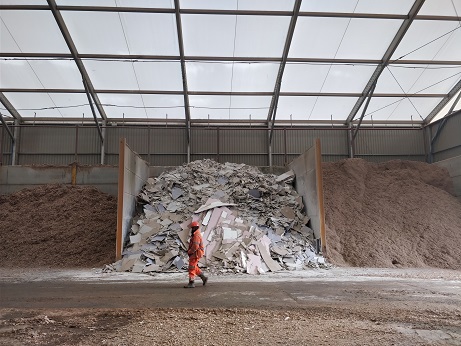
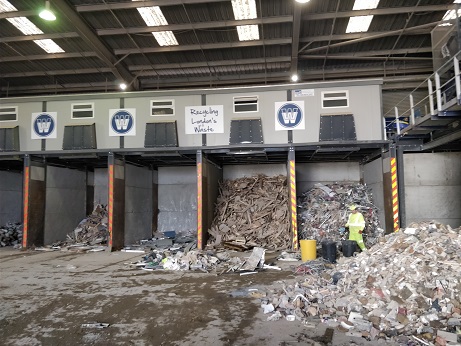
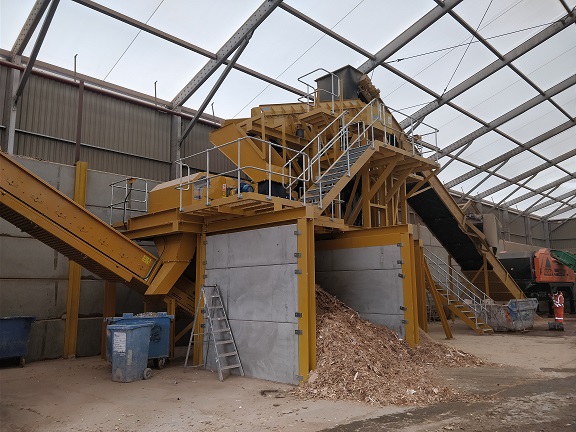










 After our visit to the clinical waste incinerator, we toured Grundon’s Energy from Waste plant. This is where general waste (e.g. the black bins at King’s, containing sweet wrappers, sandwich cartons, plastic film etc.) is processed. While general waste at King’s is collected by Simply Waste Solutions, not Grundon, the process is the same.
After our visit to the clinical waste incinerator, we toured Grundon’s Energy from Waste plant. This is where general waste (e.g. the black bins at King’s, containing sweet wrappers, sandwich cartons, plastic film etc.) is processed. While general waste at King’s is collected by Simply Waste Solutions, not Grundon, the process is the same. Hello! Well, where do I start? I’ve been tasked to sort out all of your rubbish – which may be seen as a massive ‘waste’ of time. Okay, I’ll stop with the waste puns right now. My formal title is Waste to Resource Project Coordinator, which entails me helping King’s to achieve it’s 2018/19 goal of recycling 70% of all its commercial waste, along with aligning waste practices across the King’s estate.
Hello! Well, where do I start? I’ve been tasked to sort out all of your rubbish – which may be seen as a massive ‘waste’ of time. Okay, I’ll stop with the waste puns right now. My formal title is Waste to Resource Project Coordinator, which entails me helping King’s to achieve it’s 2018/19 goal of recycling 70% of all its commercial waste, along with aligning waste practices across the King’s estate.